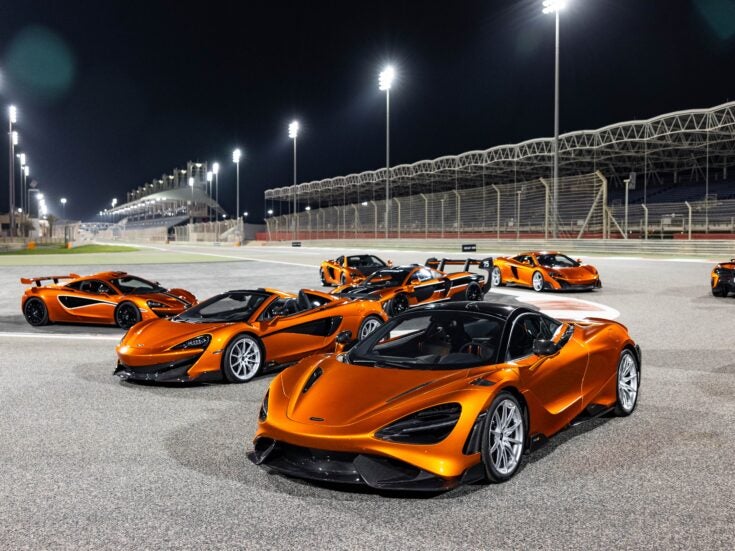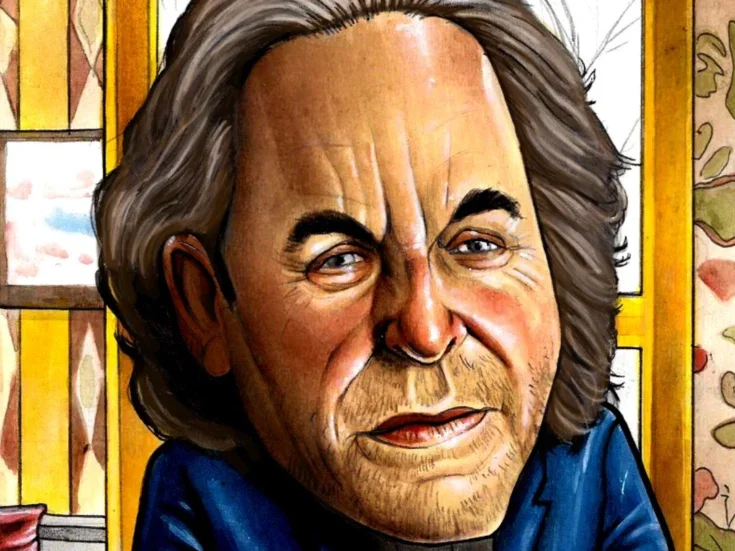
ELECTRIC DREAMS
Bright sparks have been trying to make electric cars a turn-on for decades. They’ve failed. But BMW may just have cracked the future of green motoring, says John Arlidge
This article is from the Ben Goldsmith guest-edited issue of Spear’s
How we laughed at electric cars. We scoffed at their cheap designs, utilitarian interiors and engines that sounded like they were made of plastic. We ridiculed their humourless creators, with their cardigans and polyester trousers. Who would want to buy a Flymo with four wheels? Har-har-har.
Well, we interrupt history — and the recession — to bring you the man who might, just might, have cracked the future of green motoring.
Ian Robertson is standing in BMW’s Zaha Hadid-designed factory in Leipzig. In front of him is a car that doesn’t look like any other. OK, it has four wheels and a steering wheel, but the doors and roof are made of what looks and — knock, knock, knock — sounds like plastic. Transparent plastic at that.
Inside, the car is largely empty. There are just four seats and, with no drive tunnel connecting the engine in the front to the driven wheels at the back, the floor is flat. Turn the engine on and the car is silent, thanks to the electric motor. Is it a ghost car? Or a joke car? Quite the opposite.
The BMW i3 is, says Robertson, ‘the first of a series of mass-market electric cars. It will create its own unique market’. That’s quite a claim. In the past 50 years, only four cars have revolutionised the marketplace — and none is electric. Land Rover invented the luxury 4×4 with the Range Rover; Renault’s Espace created the people mover; the Toyota Prius established the petrol/electric hybrid; and the new Mini, also made by BMW, created the luxury small car.
Barge pole
What makes Robertson so cocky? ‘The i3 breaks new ground in technology, design, driver experience and ownership,’ he says. Most electric cars are merely conventional cars modified to accommodate bulky batteries, he explains. That’s one reason most end up looking — and handling — like fat, ugly barges. ‘Our i cars are the first clean-sheet-of-paper electric cars, designed from the ground up. They are born, not made, electric.’

The i3’s chassis is made of lightweight, reclaimed aluminium. The body panels and doors are super-strong carbon fibre-reinforced plastic, and the resulting lower weight means the car can run for longer on smaller, lighter batteries. The lithium-ion batteries are built into the floor, leaving room for a decent-sized boot. The tiny 170bhp engine — electric motors are half the size of combustion ones — is slotted in the rear and drives the rear wheels, hence no drive tunnel.
The result is a car that looks good on the outside and, thanks to its flat, low floor and high, see-through roof, feels much larger than it is on the inside. Putting the batteries in the floor creates a low centre of gravity, which promises BMW’s traditional sporty handling.
An i on the future
The i3 is not alone. Also alongside Robertson in Leipzig is the i8 electric sports car, capable of 0–60mph in 4.6 seconds and with a top speed of 155mph — performance comparable to a Porsche 911. More ‘i’ cars are being dreamt up in Munich — BMW has trademarked i1–i9. It plans to blanket all its ‘i’ models in a cocoon of connectivity and services. These range from customised home-charging to apps that locate local parking, public charging stations, even other modes of urban transport, such as bike rentals and BMW’s recently introduced car-sharing service, DriveNow. ‘We are a mobility company. We sell cars, yes, but we also sell mobility,’ says Robertson.
So far, so sparky. There’s just one problem. Consumers hate electric cars. Every single model introduced so far has flopped.

In the US, the largest and most important market, Nissan sold just 9,819 of its much-hyped Leaf last year, less than half its already modest target. General Motors shifted just 8,817 of its Volt in the first half of 2012, a fraction of the 45,000 forecast. Audi and Toyota are so convinced that electric cars will remain stuck in the slow lane that they recently scrapped plans to mass-produce any battery-powered vehicles.
The key reason electric cars aren’t moving is ‘range anxiety’ — the fear that the car will run out of power before it reaches its destination. The i3 has a modest range — just 100 miles — on electric power only. But Robertson says the car’s optional two-cylinder petrol-powered battery charger means it can travel 250 miles before it either needs new petrol or a recharge.
Another reason for the slow take-up is that, even with discounts and incentives offered by governments and local authorities, electric cars are expensive. That’s because batteries cost a lot to develop and build.
Emissions statement
How much will the i3 and i8 cost when they go on sale later this year? Robertson won’t say. Nor will he predict how many will be sold. ‘You’ll have to wait for the numbers,’ he says. The truth is neither he, nor anyone else, has a clue. What Robertson is certain of, however, is that BMW has no choice but to forge ahead.
New environmental legislation means that all car makers will have to reduce dramatically their overall CO2 emissions in the next decade, and electric cars are an easy way to do that. Also, BMW, like all car makers, wants to avoid being blindsided by a technology shift, as the music and publishing industries have been. If electric cars ever do take off, it wants to be ready to jump on the E-Wagon.
Robertson has invested around £1 billion of BMW’s cash in the ‘i’ cars, including buying a 16 per cent stake in a carbon fibre manufacturing plant near Seattle to guarantee supplies to the Leipzig factory. It is the biggest gamble BMW has taken since it bought Rover, which ended up costing the firm £3 billion when its ‘English patient’ died.
Robertson knows he will go down in automotive history as the man who made BMW’s second biggest blunder — or the man who made the first electric car motorists wanted to buy. He doesn’t have long to find out his fate. The first i3s roll out of Leipzig in July.
Read more on cars from Spear’s
This article is from the Ben Goldsmith guest-edited issue of Spear’s
Don’t miss out on the best of Spear’s articles – sign up to the Spear’s weekly newsletter
[related_companies]






